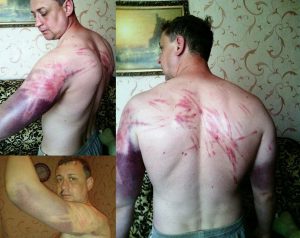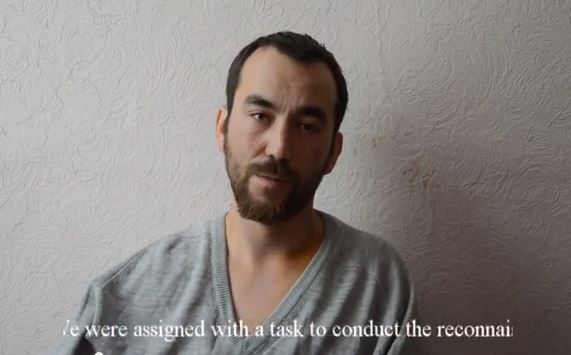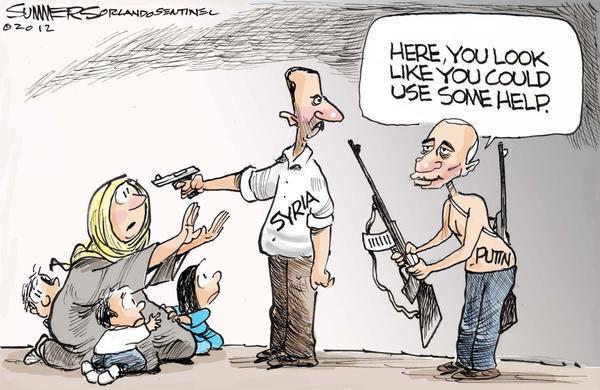Moscow commentators have focused on what they view as the anti-Russian activities of the Kyiv Patriarchate of the Ukrainian Orthodox Church and the Uniates, but it turns out, several observers say, that one of the most pro-Ukrainian and thus anti-Russian groups in the Donbas are leaders and members of Protestant denominations there.
There are some 20,000 Protestants in eastern Ukraine, Yekaterina Shapoval writes, who actively support the territorial integrity of Ukraine by directly supporting Ukrainian forces, providing humanitarian assistance to the population, helping people to evacuate, and tearing down statues of Lenin.
In Shapoval’s words, “the Protestants in the East have turned out to be one of the most patriotic social groups,” something that experts say is “not accidental.” Mikhail Cherenkov, a professor at the Ukrainian Catholic University and himself a Protestant, notes that “the Donbas was always the most Protestant region in Ukraine.”
A major contributing factor was that during the Soviet period, people from across the USSR came to work in that Ukrainian region. As a result of intermixing, “the level of traditional Orthodox religiosity was lower than in the rest of Ukraine,” according to Kirill Govorun, a former senior hierarch of the Ukrainian Orthodox Church of the Moscow Patriarchate.
And when the region went into a deep depression in the 1990s, the number of Ukrainians who turned to Protestantism grew significantly. When the Ukrainian economy improved in the first years of this century, Cherenkov says, many of those who had done so turned away from the Protestant denominations.
Indeed, he suggests, the chief “misfortune of Ukrainian Protestantism” is that it experiences the greatest growth when times are tough.
Russian intervention has thus produced an increase in the number of people in the Donbas who are participating in Protestant groups and an increase in the activity of them and their church leaders in order to help defend Ukraine against Russian intervention and Moscow-sponsored secession.
Pro-Moscow forces have acted in ways that have contributed to the growth of pro-Ukrainian Protestantism in the east: During the course of 2014 alone, the pro-Moscow militants killed seven Protestant pastors, seized 40 church activists, and confiscated the buildings and land of 12 religious communities.

The pro-Moscow militants operated on the principle, Petr Dudnik, the pastor of the Church of the Good News, that “there is only one true faith, Russian Orthodoxy, and all the rest, is an American faith. This means that we are accomplices of the US.”
Dudnik, Shapoval points out, is “a legendary figure” in the Donbas. When the pro-Moscow militants occupied Slavyansk, he led 4,000 Ukrainians out of the line of fire; and later, he and his parishioners did the same for another 12,000 Ukrainians from Debaltsevo, Donetsk, Luhansk, and Horlivka.
But it is not just the bestiality of pro-Moscow forces that is leading to a growth in Protestant activism in eastern Ukraine, Shapoval says. It is also the fact that Protestants see the spread of Russian power in the region as heralding the return of “the ‘red dragon’ – Stalin, Lenin, and the entire Soviet-communist horror” under which they suffered in the past.

Their anti-Sovietism is clearly in evidence, the Ukrainian journalist says, in their active involvement in efforts to tear down statues to Lenin and other Soviet leaders. In many cases, it has been Protestants who have taken the lead in these efforts.
There are also many Protestants in the Ukrainian forces in the region, and their Protestantism reinforces their commitment to defend their country against Russia. As one of them tells Shapoval, Christianity does require turning the other cheek, “but when one is talking about war, there is nothing like that” in the Bible.
“An enemy who can kill you or bring harm must be destroyed,” he says.
Related:
- Protestants persecuted in rebel-held Luhansk
- Evangelical Protestants in Ukraine and their emigre churches often pro-Russian, Ukrainian religious expert says
- Statement of heads of Evangelical Protestant Churches of Ukraine on religious persecution in the Donets and Luhansk Oblasts
- The Church in the Bloodlands
- War and Ukraine's religious communities
- One year ago I was kidnapped, tortured, and... let go!





